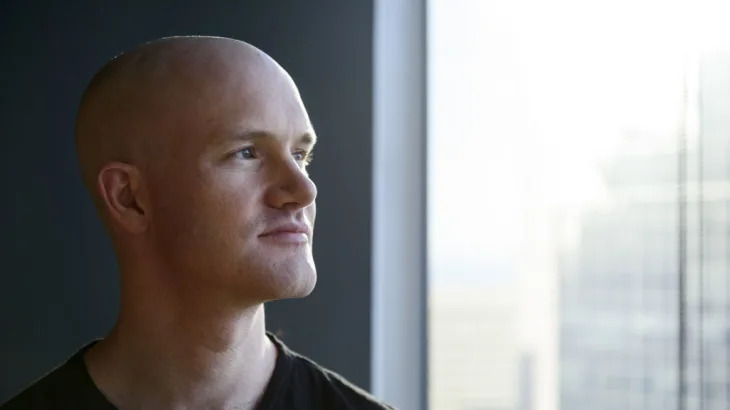(Bloomberg) -- Larry Fink turned to big deals to get BlackRock Inc. out in front of a decade of money gushing into index funds. Now he’s doing the same to make sure his firm isn’t left behind in the stampede into private assets.
The longtime BlackRock boss has plunked down roughly $16 billion this year to become the world’s second-biggest infrastructure investor and acquire the data needed to, as he put it, “index the private markets.” Now his firm is in advanced talks to buy HPS Investment Partners — one of the biggest players in private credit — and discussing taking a stake in Izzy Englander’s Millennium Management, one of the world’s preeminent hedge funds.
In the meantime, BlackRock told staff this week that it decided to wind down a strategy for long-term private equity, return capital to investors and stop raising new money. And it’s revamping the private credit and hedge fund units it already has.
The moves are meant to position BlackRock to compete with the biggest players in private markets: KKR & Co., Apollo Global Management Inc., Carlyle Group Inc. and Blackstone Inc., from which BlackRock was spun off three decades ago. It’s all to get ahead of the private markets boom that its proponents predict could be on the scale of the passive-investing movement that plunged many traditional asset managers into crisis and made BlackRock an $11.5 trillion behemoth.
While people with knowledge of the matter caution that both the HPS and Millennium talks could end without a deal, they illustrate the ambitions of BlackRock’s leaders to transform the company as it did at two previous critical junctures.
In 2006, BlackRock acquired Merrill Lynch Investment Management for more than $9 billion, creating a firm with about $1 trillion of assets. Three years later, it acquired Barclays Global Investors for $15.2 billion — at the dawn of the ETF era. With that one leap, it gained a $1.5 trillion operation from Germany to the UK and put Fink’s company on a path to become the biggest ETF provider in the US and Europe.
“Money is flowing into private assets, and BlackRock wants to be in a position to capture that,” said Michael Rosen, chief investment officer of Angeles Investments, who recalled that he first met Fink in the mid-1990s during a client meeting about fixed-income investing. “I’d never bet against him.”
Larger Deals
The investments provide higher fees and profits than benchmark ETF and index funds, of which BlackRock managed $7.75 trillion at the end of September. And while the firm already manages more than $300 billion of liquid and illiquid alternative assets, it’s now seeking to offer even larger deals to insurers, pensions and sovereign wealth funds that crave longer-term, higher-yielding investments.
“Private markets are an increasingly central part of our clients’ portfolios,” a spokesperson for the New York-based company said in a statement. “BlackRock has invested in growing our private markets platform for more than a decade. This positions us to deliver for our clients, who continue to seek to do more with us. Our recent results reflect their confidence.”
Still, such buying sprees come with risks, even for BlackRock.
The firm is spending money fast and taking on more debt to acquire private-asset managers, and it’s often difficult to integrate cultures and narrow what can be a chasm in pay.
BlackRock’s compensation expense per employee was about $292,000 last year, while the biggest US private markets firms averaged roughly triple that.
When they assessed the outlook for BlackRock’s debt, Moody’s Ratings analysts questioned whether the size and timing of the deals would pose difficulties as they placed a negative outlook on the firm’s Aa3 rating, the highest credit grade among publicly traded asset managers.
“We remain concerned that the risks associated with absorbing and integrating two acquisitions will place strain on BlackRock’s management resources, although the firm’s record in undertaking large acquisitions is good,” Moody’s said in a Nov. 10 note.
BlackRock’s sheer size gives it a distinct edge: the power to buy industry leaders outright.
It’s challenging for traditional stock- and bond-investment firms to catch up quickly in global private markets, pegged at more than $13 trillion by McKinsey & Co. Fundraising takes months, if not years. Investments can last five, seven or even 10 years. Public pensions, family offices, wealthy individuals and sovereign wealth funds generally demand lengthy track records.
As part of its $12.5 billion deal to acquire Global Infrastructure Partners, BlackRock set up a $650 million retention pool to keep GIP’s dealmakers happy. GIP co-founder Adebayo Ogunlesi, one of BlackRock’s largest individual shareholders, is set to join the company’s board, with a major say over strategy. Its chief operating officer, Raj Rao, is a member of BlackRock’s global executive team, and other senior GIP investors landed large paydays and lucrative incentive packages to stay.
To some people with direct knowledge of the firm, the deal was something akin to an arrival of the billionaires within its employee ranks, where compensation has sometimes lagged behind rivals in private markets. Many of BlackRock’s existing infrastructure employees are part of the 600-person infrastructure investing division that’s now known as “GIP, a part of BlackRock.”
Higher Fees
In addition to its Oct. 1 purchase of GIP and its pursuit of HPS — possibly for more than $11 billion — BlackRock is also scooping up Preqin Ltd., the private markets data firm, for £2.55 billion ($3.23 billion). And it has joined with Partners Group Holding AG to create new baskets of alternative assets, including private equity and credit, for wealthy investors.
All of these deals may help boost BlackRock’s bottom line. Alternatives funds charge higher fees than passive index funds and ETFs. In the third quarter, liquid and illiquid alternative assets totaled about 2% of the company’s assets, but management and performance fees accounted for about 14% of total revenue.
That could help the firm meet its goal of doubling private markets revenue by 2028, possibly even by the end of next year.
Overall, BlackRock now manages roughly $450 billion of alternatives. Clinching a deal for HPS, which oversaw $117 billion of assets at midyear, would add to the total.
BlackRock’s past efforts to buy and operate private markets firms haven’t always been smooth.
Take Tennenbaum Capital Partners, a credit firm that had about $9 billion of committed client capital when BlackRock bought it in 2018 — before the industry gold rush took off in earnest. While BlackRock had said continuity was key to the transaction’s success, three of five senior Tennenbaum partners have left and a fourth is in the process of doing so.
Tim O’Hara, BlackRock’s global co-head of credit at the time, departed in 2022. James Keenan, currently global head of private debt, is also exiting after about two decades at the firm.
BlackRock’s efforts to grow in secondary investments also have faced setbacks. Three of the company’s top executives in that part of the industry decamped in 2022 to Apollo, not long after helping the firm raise more than $3 billion for such transactions.
On Thursday, senior BlackRock executives told staff that the Long Term Private Capital strategy will now focus on returning the remaining cash in the fund — about $1 billion — to investors. The strategy fell well short of the earliest fundraising target of about $12 billion. The firm decided to pull the plug on a second vintage of the fund, according to a memo from President Rob Kapito, Chief Operating Officer Rob Goldstein and Brent Patry, global head of equity private markets.
“We understand that different clients have different needs, and we believe that refocusing our entire effort on maximizing value of existing portfolio companies and returning capital is in the best interests of all stakeholders,” the executives wrote.
GIP Fundraising
The GIP deal was structured differently than previous acquisitions. With its $115 billion of infrastructure assets, GIP’s senior management team is now in charge of BlackRock’s combined infrastructure investments, including the roughly $50 billion BlackRock already managed.
GIP, which is expected to bring in about $1 billion of fees in 2025, is raising its fifth infrastructure fund, targeting $25 billion. That would rival the $28 billion raised last year by Brookfield Asset Management.
BlackRock and GIP also struck up a new partnership with Microsoft Corp. on one of the biggest efforts ever to bankroll the build-out of data warehouse and energy infrastructure behind the boom in artificial intelligence.
Acquiring HPS could bring even more of the top names in private markets in-house at BlackRock.
Founded in 2007 by Scott Kapnick, Scot French and Mike Patterson, the firm bought itself out of JPMorgan Chase & Co. in 2016, a deal that valued it at almost $1 billion.
A deal with Millennium could be mutually beneficial.
BlackRock would get a piece of one of the world’s biggest and best-performing hedge funds, buying it instant credibility in that industry and making it the first outside investor to own a stake in the 35-year-old firm.
For Millennium, selling a stake to BlackRock would aid its efforts to become more institutional — with its team of executives at the helm, rather than a hedge fund that’s driven mostly by one individual.
Even if the HPS and Millennium deals both fall through, BlackRock is still overhauling leadership of its existing businesses.
It ended its standalone alternatives investing unit last year, setting up separate equity capital markets and private debt units. Then, as part of the announcement of the GIP acquisition, BlackRock’s head of equity private markets, Edwin Conway, said he would leave. The firm revamped its private debt business in September, announcing Keenan’s departure and the establishment of a new direct-lending unit.
Earlier this year, the asset manager told employees about its plan to rejigger its business of investing in hedge funds. About two-thirds of its roughly $75 billion of hedge fund assets at midyear were held in direct BlackRock funds, with the rest in external funds that the company evaluates for clients.
The new initiative — BlackRock Hedge Funds — is being led by Philip Vasan, who came to the company in 2016 from Credit Suisse, where he ran prime brokerage financing for hedge funds and institutional investors.
--With assistance from Hema Parmar and Dawn Lim.




